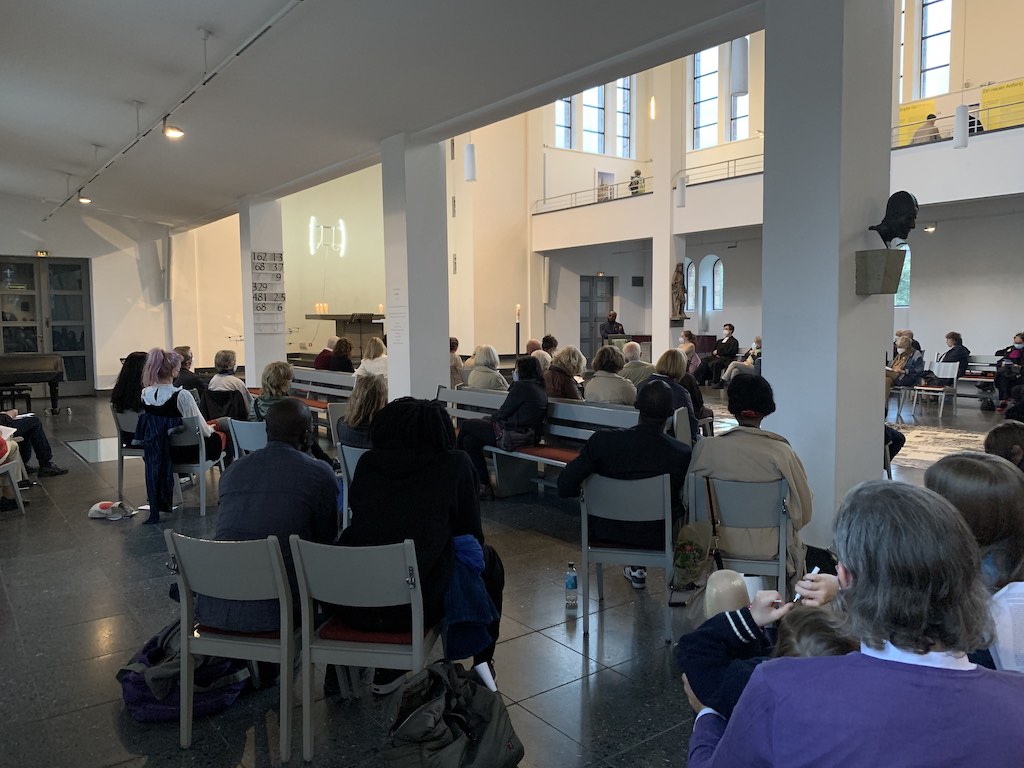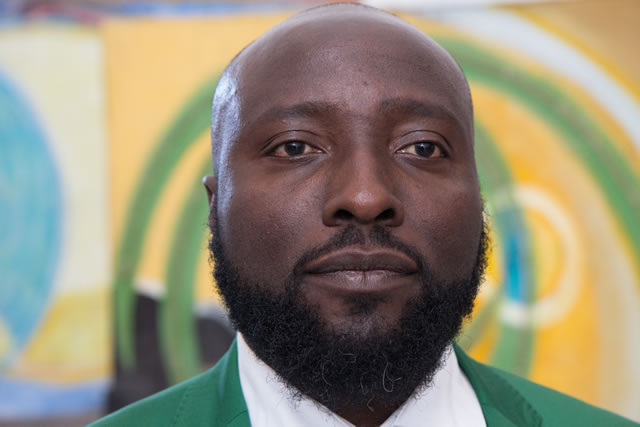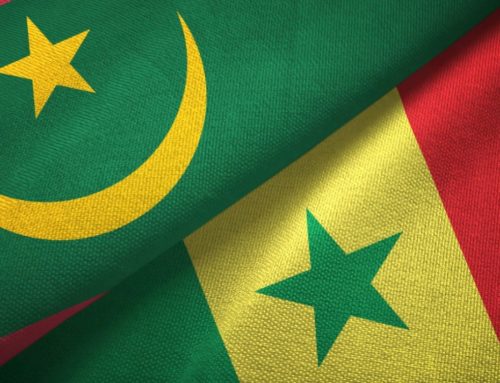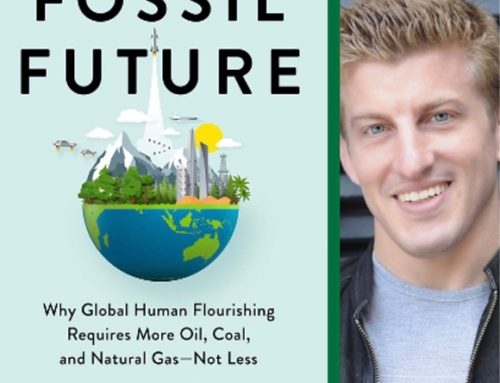And If Yes, Why & For How Long?
The Prelude:
Please permit me to start this lecture by reading two poems by the Jewish German poet Rose Ausländer (Rosalie Beatrice Scherzer) from a section titled Du und du und du in her poetry collection Gedichte published by Fischer Verlag in 2012. I understand you must have all read a lot of Rose Ausländer in your lives and might be saturated, but the context of this lecture obliges me to bring these two poems up:
Große Gemeinde
Wir sind
eine große Gemeinde
du und ich
zwei Tausendträumer
Gemeinsam I
Vergesset nicht
Freunde
wir reisen gemeinsam
besteigen Berge
pflücken Himbeeren
lassen uns tragen
von den vier Winden
Vergesset nicht
es ist unsre
gemeinsame Welt
die ungeteilte
ach die geteilte
die uns aufblühen läßt
die uns vernichtet
diese zerrissene
ungeteilte Erde
auf der wir
gemeinsam reisen

St. Matthäus-Kirche im Berliner Kulturforum
I came into the world and grew up in a very Christian and in fact Catholic household. Or maybe it is better to say that the world came to me through a Christian and catholic household. In fact, until this day, my mother still goes to church twice a day. I suspect she would even do more if she could. My father, like my elder brother and my three sisters and I all went to Christian schools in which one had to wake up at 6am and even before having breakfast one first goes to church. After his experience in boarding school, my father suspended church-going for many years claiming that in his five years in a catholic school he had already prayed for the sins he was to commit in the future. Indeed, I, having spent 7 years of my life in catholic and Presbyterian institutions of learning, too think that we were made to pray for this life we lived and for 5 other lives we might live after this one.
These were fundamental periods of our lives. In which we were told that the guiding force, the pillars on which we lean, the foundation on which to build is Christian. For context … Remember we are in Cameroon. Somewhere in the heart of Africa. A place with very sophisticated histories and cultures that go back several thousands of years.
If I were asked what I took with me in all these years of extreme christian proximity, I would say it is the so-called Greatest Commandment. In Leviticus 19:18 it says “You shall not take vengeance or bear a grudge against any of your people, but you shall love your neighbor as yourself: I am the Lord.” And in the Gospel of Matthew 22:35-40 when and a lawyer provocatively asks Jesus “Teacher, which commandment in the law is the greatest?” Jesus replies “’You shall love the Lord your God with all your heart, and with all your soul, and with all your mind.’ This is the greatest and first commandment. And a second is like it: ‘You shall love your neighbor as yourself.’ On these two commandments hang all the law and the prophets.” It is the latter that has stayed with me forever.
I guess it caught my attention and has stayed with me because it is in itself a paradox.
If one knows a bit of history, then one knows that Christianity, at least the way it found its way through the world to the nooks and crannies of the world, be it in Asia, Americas or Africa had very little to do with the notion of “loving thy neighbour as thyself.” Not only because christianity played an important role in the colonising of Africa in the so-called “mission civilisatrice”, but also because religion was a crucial part in the destruction of endemic knowledges and knowledge structures in what Boaventura de Sousa Santos has called the epistemicide. In that way, christianity like other imported religions has played quite a role in the formulation of racial and racist ideologies that have been projected on non-European peoples for over a thousand years. A few months ago, a video was circulating on social media of a young blue-eyed, blond and long hair white man who had traveled to Kenya — maybe invited by a church — and revered as Jesus. The image of Christ as white and the devil as black which was brought to the African continent through Christianity and biblical constructs were also used to justify the brutal transatlantic slave trade over centuries. The slaveholders focused on the story of Noah, Shem, Ham, Japheth and Canaan as told in Genesis IX, 18–27, which ends with the statement: “Cursed be Canaan! The lowest of slaves will he be to his brothers” and became the foundational statement for the justification of enslavement of Africans by the Europeans in what is known as “The Curse of Ham,” allegedly Ham was black, and his descendants were made Africans. But I digress.
The title of this lecture “Who is my neighbour… and if yes, why, and for how long” actually tackles 3 essential questions that have hunted and haunted me all my life:
1. The first question is that of neighbourhood. Which is to say why did Jesus choose the notion of the neighbour, I.e. one who is considered out of the immediate notion of the family or blood relation as a reference point for this great commandment. He could have as well said love thy brother and sister as thyself, but he decidedly said neighbour. So the question is who is my neighbour? When he says love thy neighbour does he mean I can love the Syrian, Nigerian, Cameroonian refugee? Can I love the woman fleeing from persecution in her country to seek for greener pastures in my backyard? Is the Muslim, the Buddhist, the Candomble follower, the voodoo practitioner, the atheist also my neighbour? What about the neo-Nazi who chased me when I left the train station in Lichtenberg in 1997, when I just came to Germany, or the police officer who in a civilian state attacked me at the train station in 2002, or the guy who attacked me with pepper spray on the Karl Marx str in Neukölln because I was cycling with my son to kindergarten and did the unexcusable crime of cycling on the pedestrian path? Are they my neighbours and can I love them? Am I my neighbour or is my neighbour the other? Or am I the other? The process of othering is something that has occupied scholars since time immemorial. Othering being a process of creating a power gradient based on the policies of exclusion. According to Cherrie Moraga in La Guera, 1979 “what the oppressor often succeeds in doing is simply externalizing his fears, projecting them into the bodies of women, Asians, gays, disabled folks, whoever seems most ‘other’.” So is the other we have actually created as the opposite of ourselves, as the projection of our fears, as the imagination of all ills actually also our neighbour? If this is the case, and we need to love our neighbours as ourselves, then we must build societies not based on exclusion but on inclusion. Societies in which difference is not a limiting factor, but inherently part of the social fabric. Especially if the difference of the other is not an intrinsic difference. As Moraga points out further in her text “it is not really difference the oppressor fears so much as similarity. He fears he will discover in himself the same aches, the same longings as those of the people he has shitted on. He fears the immobilization threatened by his own incipient guilt. He fears he will have to change his life once he has seen himself in the bodies of the people he has called different. He fears the hatred, anger, and vengeance of those he has hurt.”
2. The second question is that of love. At age 20 I moved to Berlin to study. Coming to Berlin I had hardly questioned my identity. Knowing that I was a child of the world, and especially I was a child of God, I had been told that there is a larger community out there waiting for me. A community of christians, who like me believed that you must love thy neighbour as thyself. The notion of love transcended every other concept and I had been told, despite the clear historical facts of christian invasions, that this love is blind and especially doesn’t see colour, that this love is deaf and doesn’t hear accents, and that this love was humble and godly. So when I arrived Berlin, I did search for a church, a congregation. In Cameroon, one of the most affectionate moments in a church service is in the moment of sharing peace – something common in all abrahamic religions. This moment of reaching out your hand to someone feeling their warmth, their pulses, and making them understand that you are there for them in peace is one of the greatest signs of sisterhood, brotherhood and neighbourhood within the christian community. Growing up, the congregation in boarding school would sing Diana Rose’s song “reach out and touch somebody’s hand, make this world a better place if you can.” This promise of making the world a better place if you can is that effort to make the world not only a better place for you but also for your neighbour. A moment of love. A love bigger than us as individuals, but an all encompassing love. On one blessed morning in the late 90s I went to church and during “peace be with you”, I reached out my hand and a few people looked away in ignorance — as in ignoring and in being ignorant. Initially, I thought it was a mistake, an overlook, but it repeated itself and I also heard from other friends and relatives in other cities that this had happened to them. Then it dawned on me that that love wasn’t blind but actually had the power of categorising based on the colour of people’s skins and more. The essential question here though is how can we imagine a society and for that matter a world based on love. A love not only for our kind, but the others we have constructed for whatever reason. A love not only for our human species but also for animals and plants and other beings in nature. A love that transcends the anthropocentric so to say. One of the spaces in which this notion of love has been powerfully expressed was in the sculpture of Nigerian American artist Olu Oguibe with the enigmatic title “Das Fremdlinge und Flüchtlinge Monument” (Monument for Strangers and Refugees, 2017) that bears – in Germany’s four predominant languages: Turkish, Arabic, English and German – the biblical verse (Matthew 25:35): ‘I was a stranger and you took me in.’ Hardly has an art piece in recent history solicited so much controversy, leaving no one lukewarm. The gold-plated inscription – ‘I was a stranger and you took me in’ – can be understood from multiple perspectives. Foremostly, as an expression of gratitude for hospitality and care, in instances where that was the case. But the use of this biblical phrase in this context could also be seen as an affront by those who never wanted to be hospitable in the first place and expressed hostility instead. It could also be perceived as rubbing salt into the wounds of a society that claims to be founded on Christian and democratic values. As if each letter, each word, served to remind the reader of the hypocrisy of nationhood, religion, democracy and other values of the so-called ‘Leitkultur’.

via Wikimedia Commons” width=”256″ height=”384″ /> Obelisk Olu Oguibe | Rabax63, CC BY-SA 4.0 <https://creativecommons.org/licenses/by-sa/4.0>, via Wikimedia Commons
3. The third question is one of temporality. There were 2 questions that I frequently got when I moved to Germany. “Where are you from?” and “when are you going back?” This question has followed me all through my being in this country. When ever I do an interview in any newspaper, there is a very high probability that in the comment section some one would write that if I didn’t like things the way they are in Germany I should go back to where I come from. Usually the language is much more crude for me to use in a church premise. This essentially points at the conditionality of that idea of neighbourhood. It seems you can be my neighbour if only you tow the line, speak the right language, and you dare not commit a crime. Neighbourhood seems to be a of temporal phenomenon, and while some can afford to be sick, mad, criminals and more, our neighbours cannot afford the luxury of all these ills. Time in this short lecture doesn’t afford us the possibility of going deeper into this, but it seems as if we need to augment that greatest commandment to “Love thy neighbour as thyself… for a limited period of time.”
Which brings me to the project: „Utopie Kulturforum.“ On the website it read that “the Berlin Kulturforum is a place of longing. Long vilified as an urban “non-location”, it also encompasses one of the most promising cultural constellations in Berlin, which is currently developing new dynamics through the construction of the “Museum of the 20th Century”. Right in the middle is St. Matthew’s Church, which, as the area’s oldest building, juts out into the sky as a reminder of the area’s multi-layered development.
The “non-location” has always been a stimulus for projections: What could a successful interplay between neighboring institutions look like? How can the relationship between art, religion and society be understood and redeveloped in this place? The non-place, Greek “ou-topos”, opens the space for projections.”
The issue of utopias and dystopias has occupied me for many years, but today I am more interested in the notion of the forum, which I would like to spare a few words about in relation to loving thy neighbour as thyself.
Etymologically, there is an interesting connection between the words Forum and Foreign… and believe it or not even Forensic. But that for another time.
Forum: the ”place of assembly in ancient Rome,” the “marketplace, open space, public place,” is also related to foris, foras which means “out of doors, outside.”
Foreign: refers to places “outside the boundaries of a country” of persons, “born in another country,” from Old French forain “strange, foreign; outer, external, outdoor; remote, out-of-the-way” as well as from Medieval Latin foraneus “on the outside, exterior,” from Latin foris (adv.) “outside,” literally “out of doors,” related to foris “a door.”
Both words have as their common denominator the Proto-Indo-European root *dhwer- which means “door, doorway.”
Which is to say that at the basis of the forum and the foreigner is the idea of the threshold, and especially transcending that threshold. So the forum of any kind should be a place in which neighbours, others, foreigners convene, congregate and find communion. The forum should be a place in which that love for thy neighbour and actually thyself is negotiated, questioned and practiced. The forum must be a place in which between every “du und ich” there must be at least “zwei Tausendträumer” and the forum must be a place in which we must recognise and should be constantly reminded that the world in which we live in is “unsre/ gemeinsame Welt/ die ungeteilte/ ach die geteilte/ die uns aufblühen läßt/ die uns vernichtet/ diese zerrissene/ ungeteilte Erde/ auf der wir/ gemeinsam reisen.”
If there is one thing that the current pandemic and the dire state of the climate crises have taught us it is that we who are in Wuhan, as much as we in Helsinki, we in Salvador do Bahia as well as we in Berlin are all just co-travellers on this beautiful and fragile being we call the earth. Which is to say that if we focus on just vaccinating ourselves in a regime of vaccination apartheid and our neighbours around the world are deprived of the possibility of protecting themselves against a virus, it is not a question of religion or commandments, it is a simple scientific logic that states that the virus will continuously mutate and get back to us. Or if we say we are protecting our forests but destroy the forests of our neighbours in the Amazonas, then we do not need Jesus to tell us that our species and others will be doomed. And the essential question is… knowing that our wellbeing is dependent on the wellbeing of the other, how do we ensure that our neighbour is in a good place so that we too are, and also ensure that the vehicle that carries us also is.
Maybe that is the duty of the forum… a place in which difference is not belittled and doesn’t separate, but difference unifies and is celebrated. A space of cacophony, in which multiple languages are spoken and translated, in which a plurality of accents flourish as much as a space in which a multiplicity of epistemologies is a given.
Please permit me to end with these two short statements:
The first is by the Malian historian Amadou Hampate Ba from Aspects de la Civilisation Africaine in which he writes:
“si j’ai fait porter tous mes efforts sur la sauvegarde de la langue peule en particulier et des langues africaines en general, c’est précisément pour éviter cette dépersonnalisation. Non pas par chauvinisme, mais parce que la beauté d’un tapis vient de la variété de ses couleurs. Ainsi en va-t-il de l’humanité.”
“If I have focused all my efforts on safeguarding the Fulani language in particular and African languages in general, it is precisely to avoid this depersonalization. Not out of chauvinism, but because the beauty of a carpet comes from the variety of its colors. So it is with humanity.”
Maybe the forum is just that carpet on which a variety of colours co-exist as neighbours with different voices and tones, different sizes and flares and most especially with the possibility of loving themselves as they do their neighbours for a non-limited about of time.
The second is by the German scholar and artist Alexander Kluge who in a recent interview in the taz was talking about “die Einbildungskraft.” He said “Die Fantasie möchte lieber flüchten, als sich mit unangenehmen Wahrheiten zu beschäftigen. Aber sie kann sich auch mit der Aufklärung verbünden. Mithilfe der Fantasie kann man gegen das Verhängnis arbeiten, zu einem Zeitpunkt, an dem es noch gar nicht da ist. Der Lehrerin, die 1945 im Luftschutzkeller mit ihren Kindern Angst vor den Bomben hat, fehlt 1929 nicht Entschlossenheit, sondern Einbildungskraft. Sie kann sich den Krieg nicht vorstellen, deshalb findet er statt.”
“The imagination. The fantasy would rather flee than deal with unpleasant truths. But it can also ally itself with the Enlightenment. With the help of imagination, one can work against doom, at a time when it is not there yet. The teacher, who was afraid of the bombs with her children in the air raid shelter in 1945, lacked not determination in 1929, but imagination. She can’t imagine the war, that’s why it’s happening.”
I am interested in understanding the forum as a place of the Einbildungskraft/Imagination. A place in which in being together and acknowledging one’s neighbour, one has the possibility of developing what we call in pidgin “sentement” i.e. the imagination that permits us to avoid the worst that might be ahead of us. The forum could be a place of Klugian fantasy and of fabulation… at least a place in which we acquire and cultivate the Einbildungskraft to live better in and with the world together.






